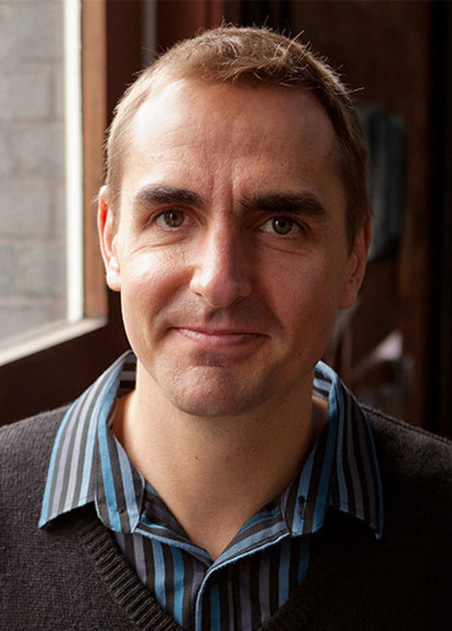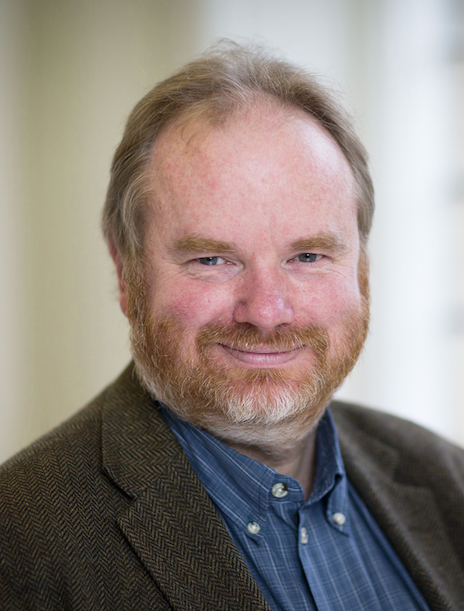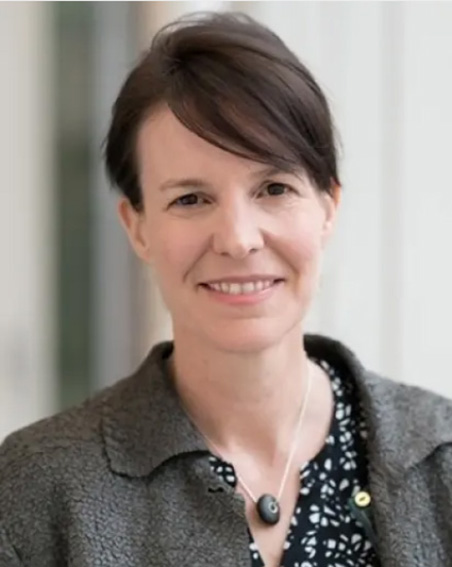Symposium 2023 summary report
The 17th OERC Symposium was held 23–24 November 2023, on the University of Otago Dunedin campus.
An Energy Research Agenda for 2050: Programme and Abstracts
The main focus of this year's symposium was a forum of discussion for all voices' energy research agendas. The symposium brought together diverse perspectives and strategies towards meeting the 2050 energy transition goals. We welcomed contributions from across the energy research community.
Recorded presentations
Ian Preston, Centre for Sustainable Energy, UK
 Ian joined CSE in 2001. As Director of Household Energy Services he oversees award winning advice projects including WHAM, Futureproof, TEA and advice line support for WPD and OVO customers. His previous role as Senior Analyst covered research into fuel poverty, consumer behaviour, hard-to-treat housing issues and scheme evaluation.
Ian joined CSE in 2001. As Director of Household Energy Services he oversees award winning advice projects including WHAM, Futureproof, TEA and advice line support for WPD and OVO customers. His previous role as Senior Analyst covered research into fuel poverty, consumer behaviour, hard-to-treat housing issues and scheme evaluation.
Ian’s particular skills include energy modelling, data collection, analysis and survey work. Ian has considerable knowledge of energy policy, from legislative framework to practical on-the-ground delivery. He also has considerable expertise in energy and consumer behaviour.
He is a leading expert on the distributional impacts of energy policy and his work in this area includes the development and application of the Distributional Impacts Model for Policy and Strategic Analysis; designing carbon taxation to protect low-income households for the Joseph Rowntree Foundation’s New Insights programme; examining the distributional impacts associated with UK climate change policy; analysing the impact of the UK-wide feed-in tariff on low income consumers; and researching into the nature, prevalence and distribution of fuel poverty in non-traditional homes in the UK.
Prior to joining CSE, Ian was based at the University of Birmingham Department of Public Health and Epidemiology as a researcher, and also worked as a project assistant at Ecotec.
Malcolm McCulloch, University of Oxford, UK
Distributed energy resources: Fractal Grid

In 1993 Malcolm moved to Oxford University to start up the Electrical Power Group. Climate change, resource depletion and social inequity are the big challenges facing our civilisation. The group’s focus is to develop, and commercialise, sustainable energy technologies. Malcolm has two active themes of research: energy access for the developing world and integrating renewable generation into existing grids.
Malcolm’s approach is to deeply understand the transition of the underlying system. Specifically, he focuses on the end users current and future needs and capabilities and to develop an energy system that grows with the end-user. He is developing a suite of techniques to accelerate system change. Specific projects include the exploiting the spatio-temporal nature grid, the weak hybrid grid, the provision of mobility and energy services from electric vehicles, and the use of effective thermal energy stores.
Malcolm has spun out four for profit companies and two not for profit enterprises. He has over 250 publications and over 30 patent and patent applications.
Malcolm believes that developing the technology is only the start. There needs to be a public awareness of the seriousness of the problems. Therefore, he has been instrumental, together with a small team of people, in conceiving and developing Tipping Point, an annual event to bring some of the top artists and climate scientists together. Through the creative use of the open space format, this forum has proved to be extremely successful that has found international acceptance. This has led to Malcolm being an advisor to Ian McEwan for his book Solar.
Elizabeth J Wilson, Dartmouth College, USA
Offshore Wind Energy Generation
 Dr Elizabeth J Wilson is a Professor of Environmental Studies and was the founding Director of the Arthur L Irving Institute for Energy and Society (2017–2022). She studies how energy systems are evolving in the face of new technologies, new societal pressures and new risks. Her work focuses on how energy and environmental policies and laws are implemented in practice.
Dr Elizabeth J Wilson is a Professor of Environmental Studies and was the founding Director of the Arthur L Irving Institute for Energy and Society (2017–2022). She studies how energy systems are evolving in the face of new technologies, new societal pressures and new risks. Her work focuses on how energy and environmental policies and laws are implemented in practice.
Her current research focuses on Offshore Wind Energy and examines the gaps between policy goals and practice in different locations around the globe. She studies how institutions are supporting and thwarting energy system transitions and her work focuses on the interplays between technology innovation, policy creation, and institutional decision making. Past projects have examined how energy policy stakeholders engage with the opportunities and challenges of within Regional Transmission Organizations, which manage the transmission planning, electricity markets and grid operations for over 70 percent of North American electricity sales.
Her research has also studied how stakeholders in different US states view emerging energy technologies like wind power, carbon-capture and sequestration, the smart grids, and the electric power transmission system. Recent books include Energy Law and Policy, Third Edition (West Academic Publishing) (with Davies, Klass, Tomain and Osofsky) and Smart Grid (R)evolution: Electric Power Struggles (Cambridge Press) (with Stephens and Peterson).
Contributing presenters
- Amanda-Lanuola Dunlop
Energy Hardship in Aotearoa: Insights from the energy Hardship Expert Panel - Sea Rotmann
Are the majority of energy users really “hard to reach” or we are not trying hard enough to reach them? - Janet Stephenson
Evaluating energy hardship interventions: from frameworks to measures - Phoebe Taptiklis
Mixed methods energy research with “open data”: Lessons from the field - Hinerangi Pere
Being a force for good, powering a cleaner brighter future with our communities - David Craven
Good data on existing homes matters: The residential efficiency scorecard - Tom Kane
Winter inside social housing - Luis Medrano
A sociotechnical post-occupancy evaluation to uncover elements of practice for reducing fuel poverty and performance gaps - Jade Seville
Interim report on the Otago home upgrade programme - Courtanay Gray
Developing a method for calculating CO2 reductions from Habitat’s HHP activities and installations - Amanda-Lanuola Dunlop, Gareth Cartwright, Tom Kane, Janet Stephenson
Panel Discussion - Arjan Abeynaike
Living labs for decarbonizing our campus - Madeline Judge
How correcting misperceptions could help accelerate transitions - Anthony Mirfin
Physically-motivated approach to incorporating solar gain into a data-driven model of building energy consumption - Kieran DeMonte
Expanded porphyrin-like designer catalysts for electrocatalytic H2 evolutions and selective CO2 reduction - Phil Glassey
Critical minerals, renewable energy and NetZero carbon. Some New Zealand perceptions - Jonathan Young
The Taranaki’s energy transition - Steve Canny
Southland’s Energy Pathway - Simon Arnold
From fossil fuels to local renewables: A research framework to address NZ’s energy GHGs - Greg Sise
Investment feasibility in a 100% renewable, energy-only electricity market - Celia Wells
Decarbonising industries with geothermal a pathway to greater direct use - Juan Cabrera
Agrivoltaics: appropiate typologies for farming operations in Aotearoa New Zealand - Jen Purdie
Industrial demand response to firm up a 100% renewable electricity system - Wilson McNeil
Electricity demand and offset emissions from nationwide heavy battery-electric vs fuel cell truck decarbonisation in New Zealand in 2050 - Sam Caldwell
Load forecasting for dynamic operating envelopes - Andy Dynan
Gravitational energy storage systems to optimise the efficiency of hydropower generation capacity in Aotearoa New Zealand - Evelyn Hunsberger
New methods of low voltage outage detection for facilitating the energy transition - David Frost
Metal fuels for zero-carbon heat and power
Visit our shared folder for PDFs of presentations
Student prizes
Best student presentation: Luis Medrano
A sociotechnical post-occupancy evaluation to uncover elements of practice for reducing fuel poverty and performance gaps.
Best poster presentation: Varinder Singh
Electrocatalytic HER study of monometallic and mixed-metal pyridazine linked cryptates.
Fellow competitors:
- Al-Hasan Abdulwahid: The role of H2-Diesel dual fuel vehicles in accelerating the uptake of H2 fuel-cell heavy vehicles in New Zealand
- Kirill Misiiuk: Examination of mechanical durability of aluminium topographically modified for energy applications
- Celia Wells: Climate science inspires students to drive down school-run carbon dioxide emissions
- Neil Fernandes: Opportunities for green hybrid generators serving remote NZ
- Leili Salmanpour: Long-term strategic energy planning
![]() Student prizes sponsor: Energy Link.
Student prizes sponsor: Energy Link.
Past symposia
16th OERC Symposium 2022 – An Equitable and Low-Cost Energy Transition
28–29 November 2022, Room 1.17 Otago Business School, University of Otago campus, Dunedin
15th OERC Symposium 2021 – The Challenge of Net Zero by 2050
18–19 November 2021, Room 1.17 Otago Business School, University of Otago campus
14th OERC Symposium – New Energy Futures post COVID-19
19–20 November 2020, Room 1.17 Otago Business School, University of Otago Campus
13th OERC and OCCNET Energy & Climate Change Symposium 2019
21–22 November 2019, Hutton Theatre, Otago Museum
12th OERC Energy and Climate Change Symposium 2018
22–23 November 2018, Hutton Theatre, Otago Museum
11th annual OERC Symposium 2017 & Ag@otago Colloquium
23–24 November 2017 at the Hutton Theatre, Otago Museum
